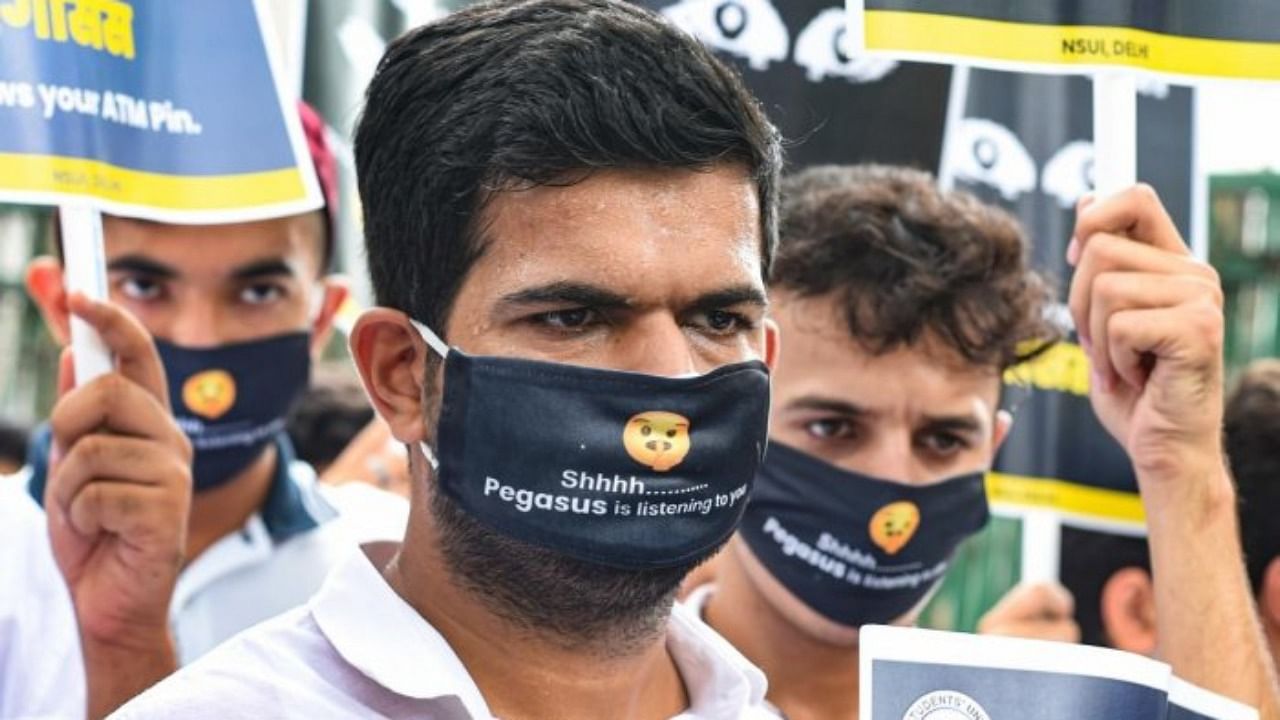
Let me begin with a first principle: Technology is value-neutral and its misuse begins in the minds of men. The Pegasus saga unravelling across the world is the latest example of how vulnerable we all are to digital prying, and how easily our privacy can be invaded — photos, text messages, conversations, emails and contact lists — to track and monitor our lives. This raises important questions: Why is there a continuing development of technologies and applications that invade personal privacy? Can they be harnessed for the greater good or is Pegasus the manifestation of a societal trend towards tightened surveillance and social control?
There can be little doubt that in the years to come, we can expect new streams of Artificial Intelligence services and a plethora of audio, visual, and remote technologies — online, household-oriented, smart cards and the like — generating a digital presence that can be monitored and tracked at all times. The downside will be that by placing personally sensitive data in organisational matrices of information-sharing arrangements not well understood by non-specialists, such systems will diminish the citizens’ effective control over the use of information about themselves. What is at stake is the extent to which the resulting social order enables people to live dignified lives; participate in diverse social and economic relationships that they adequately comprehend and control; and that people are not thrust into crises because of the idiosyncrasies of surveillance.
We are much closer to an Orwellian world than we might suppose. Yet, the discourse on the Pegasus controversy has been narrow and political, and misses the longer-term implications. The political class in particular — the deadlock in Parliament is witness — is missing the wood for the trees. Worse still, whether they fully comprehend the enormity of the transformative power of technology is a question.
The expansion of existing information systems and the development of newer surveillance systems are being driven by a set of social dynamics that amplify the use of personal data but ignore privacy concerns. We must recognise this development for what it is: Information Capitalism, the active attempts of companies and organisations to take advantage of patterns and changes in key parameters — financial, economic and social relationships — to gain market and organisational advantage.
Of particular interest here is when information entrepreneurialism expands as economic arrangements in which people and organisations expect to profit from the use or sale of information. This insidious but growing phenomenon must be examined in the context of data science and privacy practice in the commercial world, the social transformations that enable information entrepreneurial practices to be rewarding for participants, and the fragmented policy debates about data protection and privacy.
The threat of abusive surveillance is best framed in the language of ethics. Data protection in practice sets constitutional limits that shield the individual against public authorities and other powers, therefore warranting a certain degree of opacity. And because surveillance is primarily about control, looking at it through the prism of privacy allows controlling those who control. Although privacy and personal data protection safeguard similar interests, they do so differently. Privacy limits the use of State power as a tool of opacity, whilst personal data protection channels the legitimate use of surveillance, imposing a certain level of transparency and accountability.
One of the practical consequences of this distinction is the possibility that a given measure can be in line with the data protection principles but, at the same time, infringe on individual privacy. To respond to these technological developments and societal challenges, India’s data protection framework must undergo substantial reform. Rooted in international human rights law, privacy and data protection must be articulated as constitutional rights; in practice, less as a directive for public authorities and more as effective rights for individuals.
At the heart of the politics of surveillance is the question whether surveillance technology does actually enhance security for the public and for countries. There are no easy answers. How does one measure the value of one bit of intelligence that contributes to the greater whole? How do we measure the role of intelligence in informing decision-makers?
Typically, law enforcement conducts investigations after a crime occurs, while intelligence agencies collect information in advance of, and often independent of, any event occurring. Today, particularly with the threat of terrorism and extremism, these lines are blurred and, in reality, overlap. Intelligence agencies seek to support policymakers by providing deep, nuanced, strategic information. The objective is to help decision-making, while making clear that this information does not dictate what action should be taken. It is for government to decide what action to take based on the intelligence provided.
Surveillance is not merely listening to suspicious people; it is listening to interesting people. Information is what surveillance is pursuing. As the purpose of intelligence is to inform decision-making, it operates within the realm of politics. Surveillance cannot be separated from politics and politicians. What does happen is cherry-picking intelligence— select the intelligence that suits political agendas and ignore the rest.
Privacy advocates are critical of the use of surveillance programmes by intelligence agencies and their interpretation of proportionality. True, as Immanuel Kant said “Out of the crooked timber of humanity, no straight thing was ever made.” Yet, we must recognise that surveillance tools are a core part of modern-day statecraft, and in the digital age, governments rely on digital surveillance technology to support a range of interests— from national security and public order to public health and delivery of public services. We must not throw the baby out with the bathwater. Surveillance can be used to control, but it can also be used to protect and care for citizens. Surveillance capabilities provide governments with important advantages; they hold powerful transformational potential across sectors— health and nutrition, poverty alleviation, and safety and security. If used wisely, we might ride on the wings of Pegasus to defeat monstrous political chimeras.
(The writer is Director, Public Affairs Centre, Bengaluru)